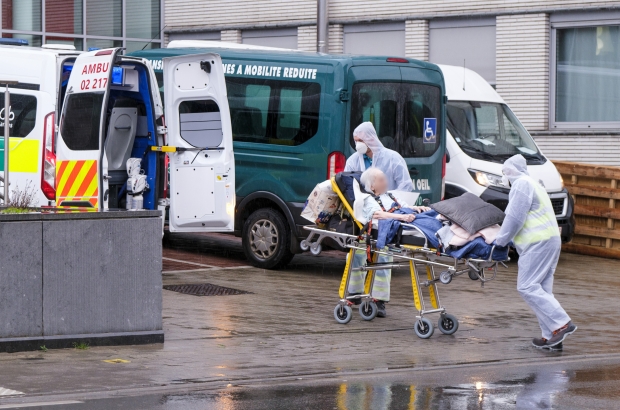- Daily & Weekly newsletters
- Buy & download The Bulletin
- Comment on our articles
'Too many antibiotics and scans': Major report examines Belgium's healthcare system
The overall quality of Belgium's healthcare system is "good", a major new report has concluded, but there is room for improvement when it comes to prevention and access for the most vulnerable.
The fifth edition of a report from the Centre of Expertise for Healthcare (KCE) evaluated Belgian healthcare provision according to 142 indicators.
Belgium's quality of care is in line with the average of 14 European member states that were studied, “if not better”, the KCE said.
The report, which is also available in English, noted that Belgium’s "avoidable" mortality rate is lower, as is the mortality rate for myocardial infarction. Survival rates for breast cancer and colorectal cancer are also higher than elsewhere.
“We are very lucky, in Belgium, to be able to rely on a first-class healthcare system when we need it – a system that performs,” the report found.
“But is this performance uniform, avoiding shortcomings for certain groups of patients and pathologies? Is the system sufficiently responsive to disruptive events? How does it compare to other European countries? And how does it evolve over time? These are all questions that need to be asked.”
The report’s findings, while overall positive, noted the staff shortages felt in the healthcare sector.
Also highlighted as issues were inadequate care for diabetics, too few patients taking multiple medications or suffering from chronic illnesses having a pharmacist of reference, the excessive use of antibiotics, and the ordering of too many medical images, mainly CT scans of the spine in the event of back pain.
“The prevalence of healthcare-associated infections contracted in hospitals has not improved,” the report also noted, adding that financial and/or administrative obstacles continue to stand in the way of comprehensive cover for the entire population.
This last finding is despite the fact that, in 2022, the compulsory public health insurance system had a coverage rate of 99.1%. Undocumented migrants, for example, are not benefiting, and KCE warned that inequalities and socio-economic inequities persist.
In terms of affordability of care, Belgium's performance was found to be average. People belonging to the population sub-group with a low level of education, or people of working age but inactive or unemployed, have the highest rates of unmet health needs for financial reasons.
“For dental care, outpatient care (excluding hospitalisation) and standard hospital care, the share of personal contributions in current healthcare expenditure is significantly higher than the EU averages in 2021,” the report states.
Another area for improvement is the length of time it takes to get an appointment with a GP or specialist.
According to the KCE, preventive care is not always meeting its targets, including vaccines for teenagers (such as for measles and HPV) among teenagers, and influenza among the elderly. Vaccination coverage remains below the recommended immunisation threshold.
The reports’ authors suggest that to improve healthcare in the country, politicians take measures that are universal, but give priority to poor or vulnerable population groups.
Photo: Nicolas Lambert/Belga


















